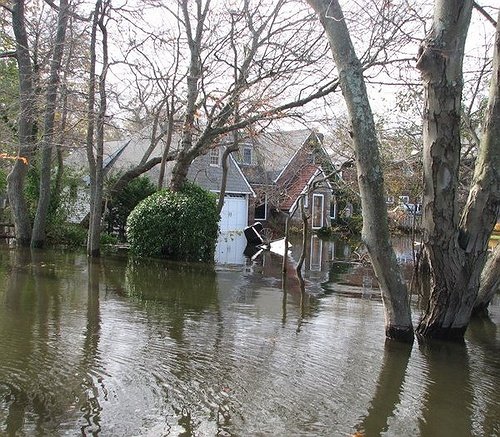Long Island, NY - October 1, 2015 - With the heavy rainfall the area continues to experience over the last several days National Grid is closely monitoring our natural gas system. Looking ahead, we continue to watch closely the path of Hurricane Joaquin and making storm preparations.
“We are preparing for the potential impact of the storm and also urge customers to take precautions and prepare for the challenges it could present,” said Melanie Littlejohn, regional executive director, National Grid. ”If there is flooding in Central New York, there also could be natural gas service interruptions.”
In anticipation of the impact of heavy rains, National Grid continues to monitor low-lying, flood-prone areas and natural gas facilities. National Grid has been, and will continue to stay in contact with local and state emergency and public safety officials.
Gas Emergency
National Grid asks that you be on high alert for gas service interruptions caused by severe flooding.
If you smell natural gas or if you have no gas service, contact us immediately at 1-800-892-2345.
Gas Safety Tips
- If your house is flooded contact National Grid immediately to disconnect power and shut off gas.
- Do not turn off the gas meter even in the event of an evacuation. The gas meter should be left on to maintain proper pressure in the gas piping within the house and to prevent water from entering the lines should flooding occur. Most gas appliances have safety valves that shut off the flow of gas automatically if the pilot light goes out.
- If your appliances have been in contact with water, please contact a licensed plumbing or heating contractor to make sure the appliances are safe to operate.
- If we have shut your gas service off for safety reasons, please contact a licensed plumbing or heating contractor before contacting National Grid. The licensed plumbing or heating contractor will make sure that your service is safe to restore.
- Don’t forget to check outdoor appliances, such as pool heaters and gas grills.
- Listen for important announcements on television and radio from emergency officials about possible evacuations or other emergency procedures.
- Customers also can stay in touch with National Grid by following the company on Facebook, Twitter and on our website
- Check on elderly family members, neighbors and others who may need assistance during an outage period.
Build an emergency supply kit.
- Water, nonperishable food, first aid materials, prescriptions, flashlight and a battery-powered radio are a few of the items that are critical to include in an emergency supply toolkit.
- A fully stocked toolkit and well-thought-out emergency plan could mean the difference between life and death. Emergency supply kits should include basic tools and survival items. For a complete list of recommended Emergency Supply Toolkit items, visit www.ready.gov.
About National Grid
National Grid (LSE: NG; NYSE: NGG) is an electricity and natural gas delivery company that connects nearly 7 million customers to vital energy sources through its networks in New York, Massachusetts and Rhode Island. It is the largest distributor of natural gas in the Northeast. National Grid also operates the systems that deliver gas and electricity across Great Britain.
Through its U.S. Connect21 strategy, National Grid is transforming its electricity and natural gas networks to support the 21st century digital economy with smarter, cleaner, and more resilient energy solutions. Connect21 is vital to our communities' long-term economic and environmental health and aligns with regulatory initiatives in New York (REV: Reforming the Energy Vision) and Massachusetts (Grid Modernization).
For more information please visit our website, or our Connecting website, follow us on Twitter, watch us on YouTube, friend us on Facebook, find our photos on Instagram










